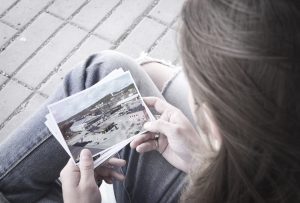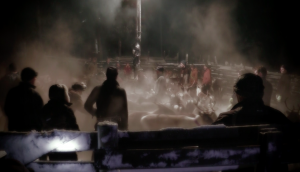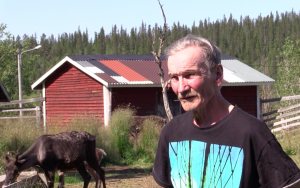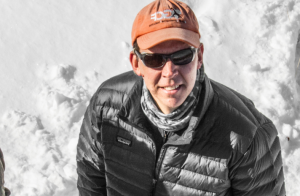In Vikosjärviu, on the border between Finland and Sweden, time goes by differently.
Away from the noisy immediacy of big cities, time slips between the swaying pastures and its delicate purple flowers that cover the fields. The clock dances with the ringing of the cowbells carried by the reindeer. It is in this nostalgic setting that Khaled meets Emil Sevä, a farmer from the Sami people who dedicates his life to raising reindeer. A man of few words, wise in his simplicity. Another important character in Khaled’s long journey.

“I have never left Vikosjärviu. Furthest I have been is Kaaresuvanto in Finland. It is probably like that with most Sami. They have not traveled far in their lives. They have lived where they were born”, Emil tells, with smiling eyes.
The Sami did not need to travel to see other parts of the world. Like many native peoples, it is the rest of the world that approaches them. A world that gets closer and closer, that invades their spaces, that expels them from their own lands. At this point, Emil and Khaled share the same road.
Khaled shepherds the reindeers under the blue sky of a typical northern summer day. The silence is tangible. You can touch it as you touch the animals or the lake’s water. There are no neighbors nor houses that can be seen in the distance – for Emil that means freedom. Reindeers are the only company. Maybe that’s why he is a man of few but sincere words.
“I think people should stay in their own country, where they were born, because that is where you feel like home. It is not the same moving back and forth close to how the Sami is. They always lived separate. I can tell you the Sami was not accepted in society before. I think they are still not accepted in society”, says the farmer.
The Sami are a large group originally from Europe’s deepest North that spread in territories across Norway, Sweden, Finland and Russia. One of the largest indigenous peoples in Europe, for centuries they have survived the attempt of cultural erasure and the hunger of agricultural activity that invades their lands. In the last years, they have been feeling the impacts of climate change too. The Sami are one of many people who have developed a sustainable relationship with nature, of proximity and respect. It is the same kind of connexion I see in my country of origin, Brazil, with its 305 different indigenous peoples. Despite the distance, their way of living is similar in many ways:
“Basically, never keeping track of time. Just living free”
The Sami flag adorns the house. The colorful palette, combining blue, red, yellow and green, stand out in the scenery covered by long pastures softly painted by the sun. The flag carries many meanings, like identity, recognition, territory, tradition. Words that we all know, but to which we give different weight. I think of how many of them have lived in these lands before the name and the flag even existed.

The changing climate, the distance from nature, the urban struggles. How long will these flags continue to wave against the winds of change that insist on transforming their worlds?
Many questions still need to be asked. Khaled’s journey does not end here.










